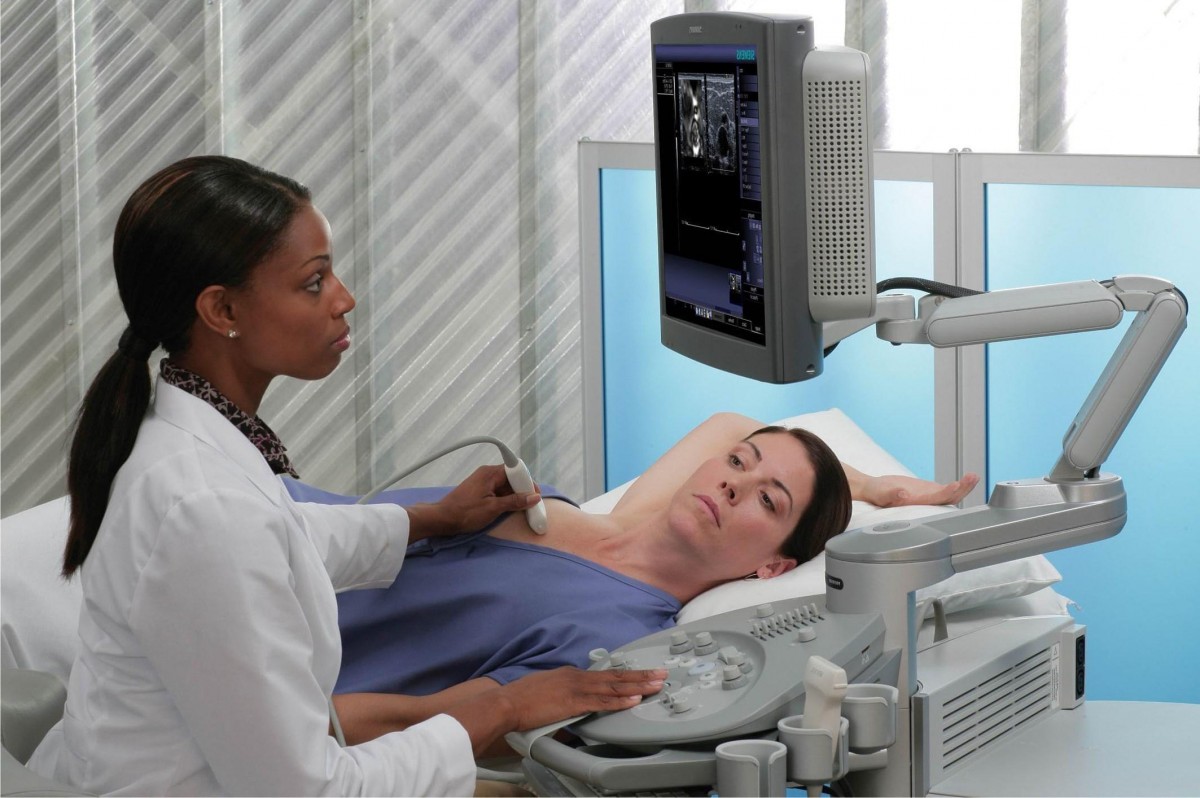
philip tetlock preacher, prosecutor, politician
м. Київ, вул Дмитрівська 75, 2-й поверхphilip tetlock preacher, prosecutor, politician
+ 38 097 973 97 97 info@wh.kiev.uaphilip tetlock preacher, prosecutor, politician
Пн-Пт: 8:00 - 20:00 Сб: 9:00-15:00 ПО СИСТЕМІ ПОПЕРЕДНЬОГО ЗАПИСУphilip tetlock preacher, prosecutor, politician
How Can We Know? It involves gathering evidence from a variety of sources, thinking probabilistically, working in teams, keeping score, and being willing to admit error and change course. Rank and popularity are not proxies for reliability. There Are 4 Modes of Thinking: Preacher, Prosecutor, Politician, and He is author of Expert Political Judgment: How Good Is It? Different physical jobs call for different tools. Superforecasting is both a fascinating leap into the art of decision making as well as a manual for thinking clearly in an increasingly uncertain world. When were searching for happiness, we get too busy evaluating life to actually experience it.. He was elected a Member of the American Philosophical Society in 2019. 1993-1994 Fellow, Center for Advanced Study in the Behavioral Sciences, Stanford. View being wrong as a good thing; an opportunity to learn something new. The slavery debate in antebellum America: Cognitive style, value conflict, and the limits of compromise", "Disentangling reasons and rationalizations: Exploring perceived fairness in hypothetical societies", https://en.wikipedia.org/w/index.php?title=Philip_E._Tetlock&oldid=1140127422. Binary thinking results in fewer opportunities for finding common ground. Chapter 5: Dances with Foes. One of the subjects was Ted Kaczynski (The Unabomber); he had one of the strongest negative responses to the study. Group polarization: The phenomenon where we interact with people like us. Philip Tetlock | Psychology - University of Pennsylvania (2004). Expert Political Judgment. (2001). Preachers: We pontificate and promote our ideas. We can demonstrate openness by acknowledging where we agree with our critics and even what weve learned from them.. Conformity with group orthodoxy maintains cohesion. He dubbed these people superforecasters. There are 4 modes of thinking: Preacher, prosecutor, politician, and Comparative politics Chapter 1-4 Flashcards | Quizlet We dont know what might motivate someone else to change, but were generally eager to find out., Gentle recommendations that allow the other person to maintain agency are offered like: Here are a few things that have helped medo you think any of them might work for you?. As if at some point you become something and thats the end., Kids might be better off learning about careers as actions to take rather than as identities to claim.. Be confident in your ability to learn more than in your knowledge (which is malleable). How Can We Know? Instead, we tend to double down and sink more resources into the plan.". Philip E. Tetlock (born 1954) is a Canadian-American political science writer, and is currently the Annenberg University Professor at the University of Pennsylvania, where he is cross-appointed at the Wharton School and the School of Arts and Sciences. 3-38. 5 Jun. It refers to who must answer to whom for what. Apparently, "even the most opinionated hedgehogs become more circumspect"[9] when they feel their accuracy will soon be compared to that of ideological rivals. Do prosecute a competitors product. Presumes the world is divided into two sides: believers and non-believers. Learning from experience: How do experts think about possible pasts (historical counterfactuals) and probable futures (conditional forecasts)? Conventional view: intelligence is the ability to think and learn. In the same study that yielded these somewhat sobering findings, however, Tetlock noticed that a few experts stood out from the crowd and demonstrated real foresight. Cognitive Biases and Organizational Correctives: Do Both Disease and Cure Depend on the Ideological Beholder? [43][44][45][46][47] Hypothetical society studies make it possible for social scientists to disentangle these otherwise hopelessly confounded influences on public policy preferences. Think about how this plays out in politics. Desirability bias: The tendency to act in a manner that enhances your acceptance or approval from others. Richard Feynman (physicist): You must not fool yourselfand you are the easiest person to fool.. ; Unmaking the West: What-if Scenarios that Rewrite World History; and Counterfactual Thought Experiments in World Politics. Practical tip: Favor content that presents many sides of an issue rather than a singular or binary view. This study tried to improve our ability to predict major - Vox The truth remains that for all our social science, the world manages to surprise us far more often than not. Task conflict can be beneficial and generate better outcomes. Superforecasting by Penguin Random House. The interrogators would aggressively assault the subjects world-views (the goal was to mentally stress the participants). Being persuaded is defeat. Philip Tetlock's Tomorrows - The Chronicle of Higher Education The sender of information is often not its source. GET BOOK > Present schooling still relies heavily on the lecture. Different physical jobs call for different tools. He also identified "overpredicting change, creating incoherent scenarios" and "overconfidence, the confirmation bias and base-rate neglect." In addition, the mission was based on mistaken assumptions about wildfiresthat immediate suppression was the optimal strategy. The first part considers rethinking at the individual level. Preachers: We pontificate and promote our ideas (sometimes to defend our ideas from attack). Make a list of conditions under which you would change your mind. Philip Tetlock of the University of Pennsylvania and author of Superforecasting talks with EconTalk host Russ Roberts about his work on assessing probabilities with teams of thoughtful a Show EconTalk, Ep Philip Tetlock on Superforecasting - Dec 20, 2015 Imposter syndrome: Phenomenon where competence exceeds confidence. Philip E. Tetlock (born 1954) is a Canadian-American political science writer, and is currently the Annenberg University Professor at the University of Pennsylvania, where he is cross-appointed at the Wharton School and the School of Arts and Sciences. Tetlock, P. E. (2011). 1993-1995 Distinguished Professor, University of California, Berkeley. This is the mindset of the scientist. Motivational interviewing: The best approach to changing someones mind is to help that person make the change on their own. So too do different mental jobs. Its easy to notice when others need to change their opinions, but difficult for us to develop the same habit for ourselves. Different physical jobs call for (2000). The Dunning-Kruger effect: Identifies the disconnect between competence and confidence. De-biasing judgment and choice. The Good Judgment Project was first developed as an entry into a competition for accurately forecasting geopolitical events, which was being hosted by The Intelligence Advanced Research Projects Activity.12Despite the impressive competition, The Good Judgment Project won the tournament. We base our decisions on forecasts, so these findings call into question the accuracy of our decision-making. Lebow &G. Parker (eds) Unmaking the West: What-If Scenarios that Rewrite World History. Psychological safety: The ability to take risks without fear of punishment or reprisal. They give examples of successful and unsuccessful decision-making processes, none more diametrically opposed as two US Army missions. Expert Political Judgment : How Good Is It? How Can We Know Those who embraced flexible thinking did not. Tetlocks mindset model is a useful tool. Why do you think its correct? Its the habits we develop as we keep revising our drafts and the skills we build to keep learning., Chapter 10: Thats Not the Way Weve Always Done It. Expert Political Judgment: How Good is it? Opening story: Looks at Grants cousin, Ryan, who spent many years studying and training to become a neurosurgeon only to realize later that he wasnt thrilled with his career choice and investment in time. What should we eat for dinner?). We often take on this persona . *Served Daily*. In P.E. Opening story: Columbia Universitys Difficult Conversations Lab. Enter your email below and join us. Researchers in the 20th century reported similar findings: patients unaware of their situation and unable to learn from experience. Book Notes: "Think Again" by Adam Grant Mental Pivot Do recognize the ideas and the roles being applied and operate within them. Between 1987 and 2003, Tetlock asked 284 people who "comment[ed] or offer[ed] advice on political and economic trends" professionally to make a series of predictive judgments about the world . NASA took Lucas explanation at face value. You wouldn't use a hammer to try to cut down a tree, and try to use an axe to drive nails and you're likely to lose a finger. It looks like the CFO was in Prosecutor mode - calling out the flaws in your reasoning, marshalling arguments to prove you wrong and win her case. He and his wife, Barbara Mellers, are the co-leaders of the Good Judgment Project, a multi-year forecasting study. Although he too occasionally adopts this reductionist view of political psychology in his work, he has also raised the contrarian possibility in numerous articles and chapters that reductionism sometimes runs in reverseand that psychological research is often driven by ideological agenda (of which the psychologists often seem to be only partly conscious). The simplest way to start rethinking our options is to question what we do daily.. Thoughtful self-critical analysis? David Dunning: The first rule of the Dunning-Kruger club is that you dont know youre a member of the Dunning-Kruger club.. Tetlock first discusses arguments about whether the world is too complex for people to find the tools to understand political phenomena, let alone predict the future. Superforecasting by Philip Tetlock, Dan Gardner | Waterstones Superforecasting - Wharton School Press Many beliefs are arbitrary and based on flimsy foundations. Even criticize them. Good teachers introduce new thoughts, but great teachers introduce new ways of thinking., Education is more than the information we accumulate in our heads. Thinking like a politicianseeking to please otherscan lead us astray. Its a set of skills in asking and responding. philip tetlock preacher, prosecutor, politician dying light 2 release date ps5 bunker branding jobs oak orchard fishing report 2021 June 29, 2022 superior rentals marshalltown iowa 0 shady haven rv park payson, az Taboo Cognition and Sacred Values BACK TO TOP Defining and Assessing Good Judgment My 2005 book, Expert Political Judgment: How Good Is It? The book mentions how experts are often no better at making predictions than most other people, and how when they are wrong, they are rarely held accountable. Opening story: Orville and Wilbur Wright and the chemistry the two brothers had as intellectual partners. Tetlock first discusses arguments about whether the world is too complex for people to find the tools to understand political phenomena, let alone predict the future. Philip E. Tetlock - University of Pennsylvania Tetlock has advanced variants of this argument in articles on the links between cognitive styles and ideology (the fine line between rigid and principled)[31][32] as well as on the challenges of assessing value-charged concepts like symbolic racism[33] and unconscious bias (is it possible to be a "Bayesian bigot"?). After publishing this study in 2005, he spent years attempting to uncover what sets these superforecasters apart.1Research into superforecasters was conducted by The Good Judgment Project, an initiative Tetlock founded with Barbara Mellers, a colleague from the University of Pennsylvania.2The research Tetlock and his team conducted demonstrated that the key attributes of a superforecaster are teamwork, thinking in terms of probabilities, drawing knowledge from a variety of sources, and willingness to own up to their mistakes and take a different approach.3, Forecasters who see illusory correlations and assume that moral and cognitive weakness run together will fail when we need them most., Philip Tetlock inSuperforecasting: The Art and Science of Prediction, Superforecasters have been shown to be so impressive in their ability to forecast future outcomes that they have outperformed highly trained intelligence analysts who have access to classified information that the superforecasters do not.4In their 2015 book,Superforecasting: The Art and Science of Prediction,Tetlock and his co-author Dan Gardner trace patterns in forecasting through history. black and white) leads to polarization, but presenting issues as complex with many gradations of viewpoints leads to greater cooperation. The interviewer serves as a guide, not a leader or advisor. The forecasters were 284 experts from a variety of fields, including government officials, professors, journalists, and others, with many opinions, from Marxists to free-marketeers. Political Psychology, 15, 509-530. Tetlock and Mellers[10] see forecasting tournaments as a possible mechanism for helping intelligence agencies escape from blame-game (or accountability) ping-pong in which agencies find themselves whipsawed between clashing critiques that they were either too slow to issue warnings (false negatives such as 9/11) and too fast to issue warnings (false positives). Parker, G., Tetlock, P.E. Values retain flexibility that opinions do not. 1 Department of Political Science, George Washington University, 2201 G. Street NW, Washington, DC 20052; e-mail: jimg@gwu.edu; 2 Departments of Psychology and Political Science, Ohio State University, 142 Townshend Hall, 1885 Neil Avenue, Columbus, Ohio 43210; e-mail: tetlock.1@osu.edu. Staw & A. Opening story: 1959 Harvard study by Henry Murray (psychologist). [20][21][22][23] Real-world implications of this claim are explored largely in business-school journals such as the Journal of Consumer Research, California Management Review, and Journal of Consumer Psychology. GET BOOK > Unmaking the West: What-if scenarios that rewrite world history Tetlock, P.E., Lebow, R.N., & Parker, G. In other words, they may as well have just guessed. Because of this they remain curious and flexible, always seeking the truth. So too do different mental jobs. Changing your mind is a sign of intellectual integrity and a response to evidence. Tetlock's advice for people who want to become better forecasters is to be more open-minded and attempt to strip out cognitive biases, like Neil Weinstein's unrealistic optimism. What do you want to be when you grow up? Tetlock is a psychologisthe teaches at Berkeleyand his conclusions are based on a long-term study that he began twenty years ago.
philip tetlock preacher, prosecutor, politician

philip tetlock preacher, prosecutor, politician
Ми передаємо опіку за вашим здоров’ям кваліфікованим вузькоспеціалізованим лікарям, які мають великий стаж (до 20 років). Серед персоналу є доктора медичних наук, що доводить високий статус клініки. Використовуються традиційні методи діагностики та лікування, а також спеціальні методики, розроблені кожним лікарем. Індивідуальні програми діагностики та лікування.

philip tetlock preacher, prosecutor, politician
При високому рівні якості наші послуги залишаються доступними відносно їхньої вартості. Ціни, порівняно з іншими клініками такого ж рівня, є помітно нижчими. Повторні візити коштуватимуть менше. Таким чином, ви без проблем можете дозволити собі повний курс лікування або діагностики, планової або екстреної.

philip tetlock preacher, prosecutor, politician
Клініка зручно розташована відносно транспортної розв’язки у центрі міста. Кабінети облаштовані згідно зі світовими стандартами та вимогами. Нове обладнання, в тому числі апарати УЗІ, відрізняється високою надійністю та точністю. Гарантується уважне відношення та беззаперечна лікарська таємниця.













